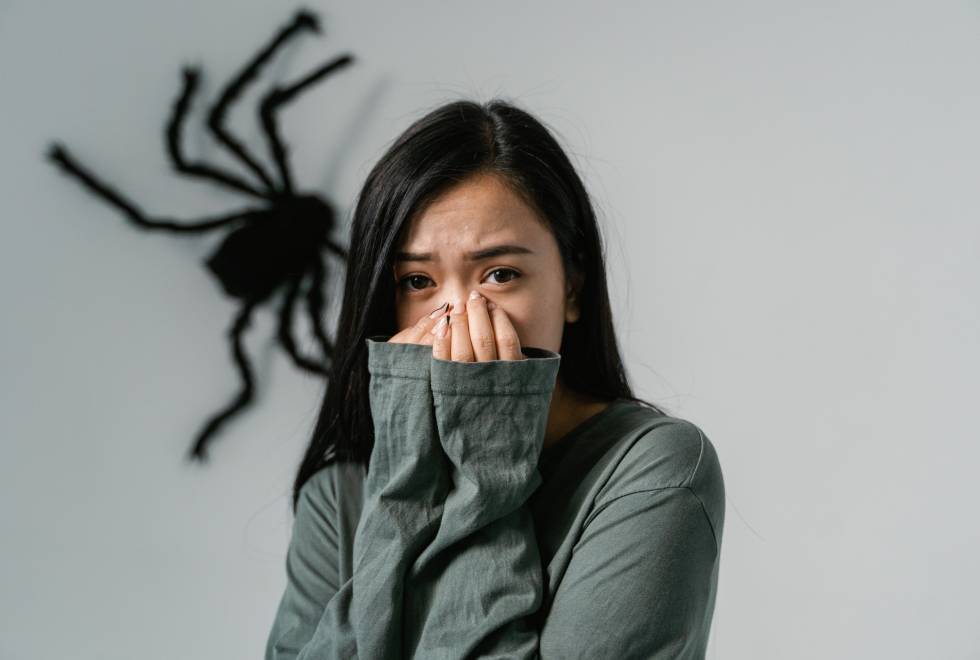
Some words have become so firmly embedded in our lives that they are used with and without a good reason. Few people think about the true meaning of words. Someone is sad – they have depression, they committed a selfish act – a narcissist, they were upset about something – they are stressed. The same is with the word “phobia”: a person scared of something – that’s it, they have a phobia.
Meanwhile, a phobia is not some kind of terrible disease nor just any fear. It is an irrational, uncontrollable fear in certain situations or the presence (or expectation) of a certain known object. The key words here are irrational and uncontrollable.
Ordinary fear is caused by an external stimulus: it is understandable and justified. Here is a dog growling at me, and I am afraid because it might bite me. The threat is very real. Phobia defies logical explanation. I walk down the street and am afraid in advance, because somewhere there may be a dog hiding. Or I see a dog in a photo, and I break out in a cold sweat just from the fact that I see its image. Phobia does not allow one to perceive the situation adequately – the mind seems to be blocked and only wild, uncontrollable fear remains.
Phobias are always obsessive in nature, in other words, fear is long-lasting and/or repetitive. When a person experiences this fear, changes occur in the physiological reactions of their body: heart rate heightens, increased sweating, dry mouth, changes in blood pressure, pain in the gastrointestinal tract, etc.
Phobia has a psychological cause and a certain image, a capsule in which real fear is “sealed”. Most often, it makes sense to work specifically with this image.
Where do phobias come from?
✓ they get “inherited”
A child’s mother was afraid of spiders. The child observed her, and voila – he learned to fear spiders just as much.
✓ past negative experience
Denny was 11 years when he got stuck in an elevator. It was not a very dangerous situation, but Denny panicked and because of it he started having difficulties breathing. His strong fear and vegetative reaction “sealed” this response. Now, Den is already grown up, but he is still avoiding elevators and all other closed spaces. He starts suffocating in them.
✓ irrational fear of an object or a situation that seemingly has no underlying reason
Eleanor is very afraid of clowns – to trembling knees and panic reactions. Why clowns? The answer became clear during a hypnosis session. When Eleanor was 3 years old, she was laying in her bed and heard her parents arguing. Then there was the sound of breaking dishes and mother’s scream. It was very scary. Eleanor did not see her parents at that time, but she saw a clown toy, which was sitting on her bed. And it was this clown that remained in memory as a symbol of threat and danger.
There are a lot of different phobias. Every one of them has a name. Listing just the phobias that start with an “a” would take several pages of printed text. In essence, any object, animal, or situation can cause trauma in certain circumstances and become the foundation of phobias.
And how elaborate their names are! Ailurophobia – is the fear of cats. Arithmophobia – the fear of numbers. Catoptrophobia – the fear of mirrors. Leukophobia – aversion to the color white. Venustraphobia – the fear of beautiful women. Coulrophobia – the fear of clowns. Phobophobia – the fear of phobias.
Psychotherapy is an effective tool in dealing with phobias. The best approach is CBT (cognitive behavioral therapy). Sometimes, medication or hypnosis is required.
CBT allows you to change the way of thinking and remove the root cause of the phobia. In other words, it corrects the deep setting within the psyche that caused the emergence of fear. Various techniques may allow you to first reduce the degree of fear to an acceptable level, and then completely remove it. A person learns to control their behavior, to take control of their reactions, and this has a great positive impact on their life.
You can say goodbye to phobias forever! Even if right now it may seem impossible.
Self-therapy can be an essential tool for personal growth and self-improvement.
Browse through our courses and see the positive changes they can bring to your life.
You are not sure where to begin?